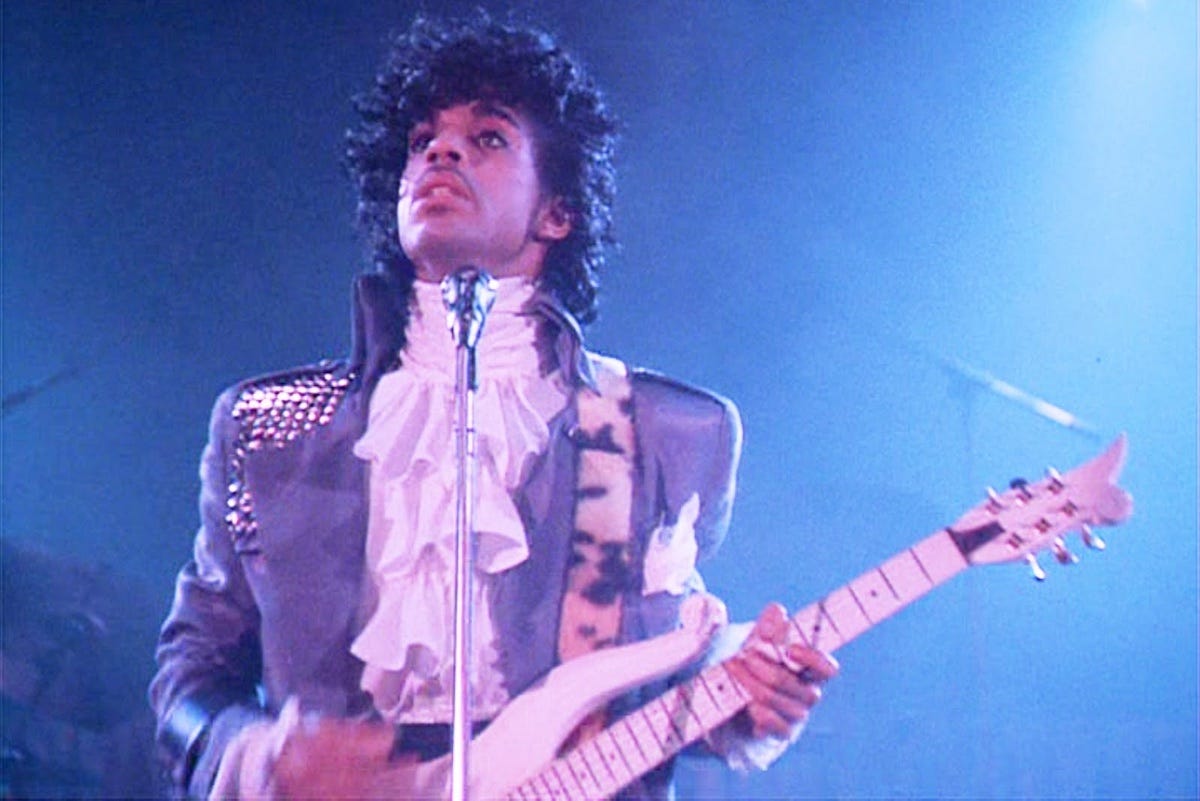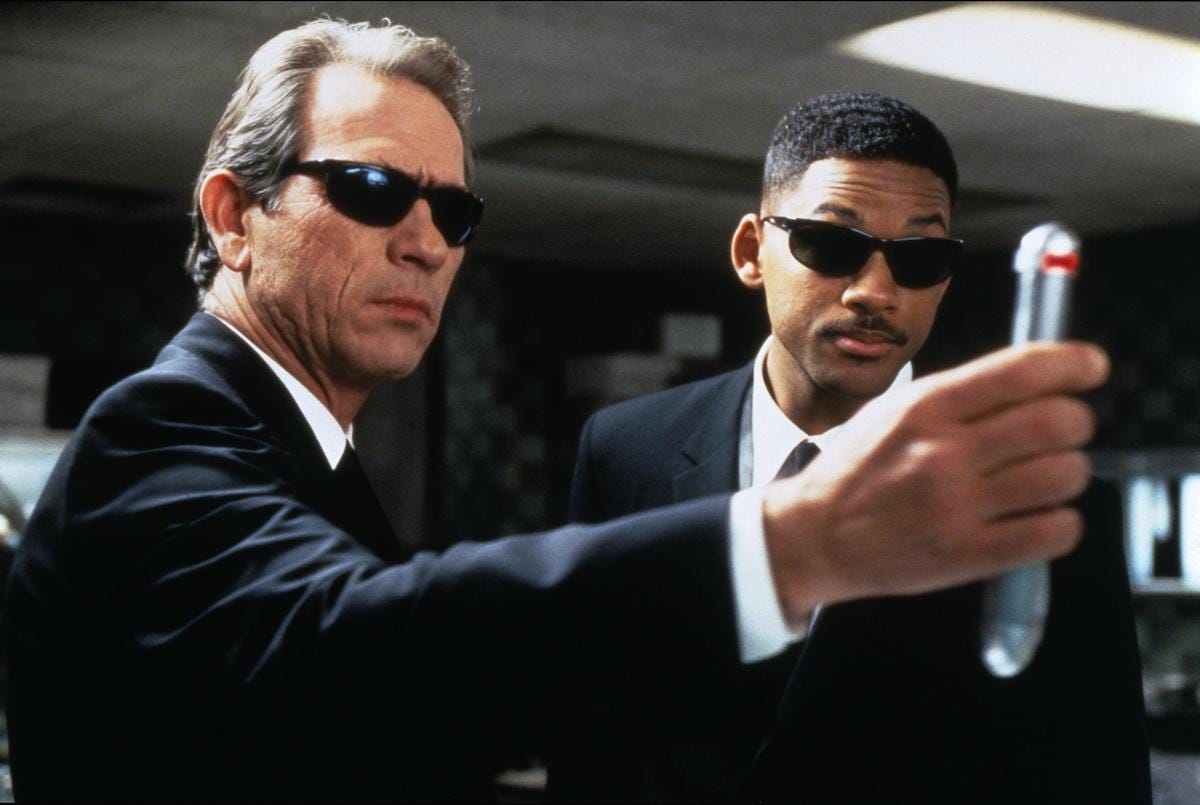The Supreme Court Embraces Auteur Theory
Plus: a conspiratorial classic assigned!
The Supreme Court handed down a fairly important, though perhaps too narrow, ruling yesterday in the case of Andy Warhol Foundation for the Visual Arts, Inc. v. Goldsmith. The facts of the case were relatively straightforward: In 1981, Newsweek licensed a photo of the musician Prince by Lynn Goldsmith. A few years after that, Conde Nast licensed the same photo for Andy Warhol to make one of his trademark pop art masterpieces for Vanity Fair. Goldsmith was paid $400 for the underlying work; it’s unclear what Warhol was paid, but it was likely much more than that. Importantly, the license sold by Goldsmith to Warhol and Conde Nast was for one-time use.
Fast forward to 2016 and Prince’s death, when Conde Nast asked about reusing the painting for a magazine commemorating his life and music. The Andy Warhol Foundation (AWF), which controls the rights to Warhol’s work, suggested they use a different creation from the same set called “Orange Prince”; Conde Nast agreed and paid the AWF $10,000 for the rights to the painting. Goldsmith received nothing. And when she asked to be compensated for this, the AWF sued her and asked for the painting to be declared free and clear under the “fair use” doctrine.
The Court ruled 7-2 in Goldsmith’s favor. Justice Elena Kagan’s dissent is top-grade art criticism—in a footnote, Kagan chided the majority opinion, authored by Justice Sonia Sotomayor, for focusing too much on rebutting the dissent; I sympathize with Sotomayor, who must have been annoyed by having Kagan write circles around her in an effort to obscure the basic facts—but not terribly persuasive on the legal merits of this particular case. Regardless of how transformative the Warhol was, the simple fact of the matter is that Warhol’s painting is based entirely on Goldsmith’s photograph, a fact made plain by the contract struck in the 1980s between Goldsmith and Conde Nast and Andy Warhol.
Again: Kagan writes eloquently about the transformative nature of Warhol’s art. It’s really quite nice. It doesn’t matter at all. As far as I’m concerned, the majority’s opinion could have been limited to this one passage:
The Court of Appeals also rejected the District Court’s logic that “‘each Prince Series work’” is transformative because it “‘is immediately recognizable as a “Warhol,”’” which the Court of Appeals believed would “create a celebrity-plagiarist privilege.” … (“[T]he fact that Martin Scorsese’s recent film The Irishman is recognizably ‘a Scorsese’ does not absolve him of the obligation to license the original book.”)
This is what adaptation is; there’s a whole industry surrounding adaptation. If you gut the right to be compensated for adaptation by allowing artists with a unique style to adapt works within that style, you’re essentially saying that any artist with a personal enough sensibility can adapt anything they want without compensating the original creator for the adaptation. A sort of auteurist exception to Fair Use. This sort of thing would have allowed, say, Paul Verhoeven to adapt Starship Troopers without obtaining the rights from the Heinlein Prize Trust: it is both immediately recognizable as a “Verhoeven” while also arguably a parody of the source material and its portrayal of a militarized post-democracy society.
And look, maybe that would be a fine thing and maybe we should revamp copyright law to allow it. But it’s not how the system works now and the system as it exists now does, I think, a fairly good job of promoting adaptation in a way that ensures both the initial artists and the adapters can benefit.
I just wanted to briefly thank everyone again who showed up for the Across the Movie Aisle live event at the Crystal City Alamo Drafthouse on Tuesday night. We had a great time watching WarGames with everyone and then talking about it after. The episode is live now; you can listen here. If you’re a member, that is! Sign up today if you haven’t already:
Links!
This week I reviewed BlackBerry, which is very good and might almost transcend to great on the back of Glenn Howerton’s performance.
Talked to Scott Mendelson last Saturday about the state of the box office and whether or not we might finally be nearing the end of the superhero boom. Tomorrow’s episode is also going to be a great deal of fun: I’m talking to screenwriter Colby Day about the frustrating day-to-day existence of a working screenwriter’s life. Pitches, rewrites, chasing down payments: it’s not all Ferraris and poolside cocktails! You can get the show via Apple here, but if you want the ad-free version straight from Substack, sign up today:
Disney’s taking a bunch of shows off of Disney+ and Hulu in order a.) to avoid paying residuals and also b.) probably to generate revenue by licensing them elsewhere. It makes sense and is yet another reminder that the streaming boom was really a streaming glut and billions upon billions of dollars got spent on stuff that almost no one ever watched.
Did I preorder a copy of this book about Whit Stillman’s career featuring a new interview and essays about his still-underrated movies? You bet I did. You should too!
Disney is closing the Galactic Starcruiser hotel/experience at Disney World, thus confirming my belief that people were unlikely to pay $5,000 to cosplay as Star Wars extras and sleep in rooms that looked like prison barracks from the TV show Andor. I really went out on a limb on that one.
David Zaslav believes it’s time to bundle streaming services together and I for one agree with that idea. Perhaps you could bring the channels right to people’s homes via some sort of cord or cable they could plug directly into their TVs. Wild idea, will make someone very rich.
Speaking of bundling, it’s going to be very awkward when people see how much ESPN costs when its cost isn’t hidden in a cable bundle.
Assigned Viewing: Men in Black (HBO Max)
Last week, writing about Ben Smith’s book Traffic, I highlighted a quote from the mid-90s blockbuster Men in Black. This week, while looking at HBO Max, I received a notification that Men in Black is now available on HBO Max. I’d like to think I manifested this development into existence, and thus believe it only reasonable to assign it via this newsletter. I remain terribly fond of this movie in no small part because it refuses to outstay its welcome, clocking in at a lean 97 minutes. Nice little time killer if you’re looking for something to do on a sleepy Saturday night.





I LOVE Men in Black, al three of them...lol
Disney making this move really isn't a surprise, but I hope they reconsider it with Willow. I went into that series with pretty low expectations based on the (even the standards of the 80s) campiness of the original and was blown away by its world and character building for everyone involved. THAT is how you pass the torch from one generation to the next and I really hope its fate is coming down to they didn't want to greenlight S2 with labor disputes looming and will give it another look down the line